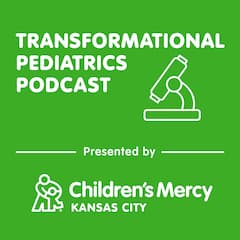
Bench to Bedside: Research Focused on Improving BPD Outcomes
Files
Download Transcript, Episode 77 (77 KB)
Loading...
Document Type
Podcast
Hosts
Michael Smith
Featured Speaker
Venkatesh Sampath, MBBS, MRCPCh
Length of Episode
13:36
Description
Each year 13,000 to 15,000 extremely premature infants develop severe bronchopulmonary dysplasia (BPD). Despite major advances in neonatal intensive care and improved survival of infants born very prematurely BPD rates have not decreased over the last decade. While there are several reasons for this, a lack of understanding of the various paths to this disease, and the absence of personalized therapies have contributed to this problem.
Researchers at the Donald Thibeault Lung and Immunology laboratories are focusing their efforts on understanding how bacterial blood stream infections injures the developing lung and cause BPD in premature infants. Recently, Venkatesh Sampath, MBBS, MRCPCh, a physician-scientist with Neonatology at Children’s Mercy hospital was awarded a five-year grant by the National Heart Lung Blood Institute (NHLBI) to study the role of inflammatory angiogenesis in the developing lung. The major goal of this project is to understand how pulmonary endothelial immune activation during sepsis promotes lung inflammation and alters the formation of lung blood vessels predisposing to BPD. In collaboration with other researchers in the laboratory, center for infant pulmonary disorders, and clinicians in the NICU we hope to develop strategies and new therapies to decrease the burden of BPD.
Hear from Venkatesh Sampath, MBBS, MRCPCh on what their ongoing research tells us about how babies develop BPD and the other studies that are underway to investigate and treat BPD at CMH and Neonatology.
Publication Date
12-5-2016
Recommended Citation
Smith, Michael and Sampath, Venkatesh, "Bench to Bedside: Research Focused on Improving BPD Outcomes" (2016). Transformational Pediatrics Podcast. 77.
https://scholarlyexchange.childrensmercy.org/transformational-peds_podcast/77





